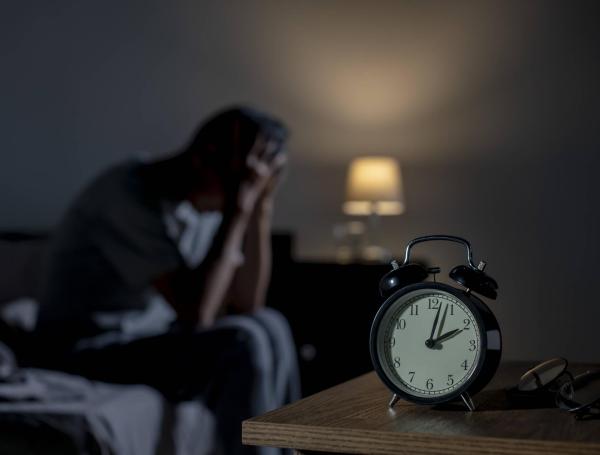Improving your daytime habits will help with insomnia.

Clinical neurophysiologist Rybel Wix at La Princesa Hospital in Madrid has pointed out that optimizing daytime lifestyle habits can help "significantly mitigate and even resolve" many nighttime sleep problems.
For this reason, according to a member of the Spanish Sleep Society (SES) Insomnia Working Group, these good daytime habits may be especially relevant for people with insomnia.
"For people with insomnia, strict adherence to sleep hygiene habits, both daytime and nighttime, is not only important, but critical and a top priority. While these guidelines benefit anyone, in the context of insomnia, they become essential therapeutic tools," he stated.
For people with insomnia, strict adherence to sleep hygiene habits, both daytime and nighttime, is not only important, but critical and a top priority.
The SES spokesperson emphasizes that insomnia is often perpetuated by a vicious cycle where concern about not sleeping well leads to daytime behaviors that, paradoxically, worsen sleep. In this regard, Rybel Wix points to the importance of exposure to natural light.
"People with insomnia often have a dysregulated circadian clock. Consistent exposure to natural light in the morning and reducing bright light in the evening are vital for recalibrating this clock, sending clear signals to the body about when to be awake and when to prepare for sleep. This is crucial for regulating the production of melatonin and cortisol, key hormones in the sleep-wake cycle," he noted.
Along these lines, the specialist pointed out that "sleep and wakefulness are two sides of the same coin. They need each other to function properly." " We can't expect a restful night if we don't take care of what we do from the moment we wake up until we go to bed. That's why it's important to change our perspective and understand that good sleep is built throughout the day; and that investing in healthy daytime habits is investing in a better quality of life and a restful night's sleep," Wix maintains.

Lack of sleep affects productivity, emotional state, and creativity. Photo: iStock
This direct impact of daytime activities on rest, the expert explains, is mainly due to the circadian clock , an internal "clock" that, among other biological functions, regulates sleep-wake cycles.
"For this clock to work accurately and prepare us for restful sleep, we need to fine-tune it, or, as we say in the medical field, strengthen our circadian system ," the SES spokesperson points out.
Sunshine This is achieved primarily through what are known as synchronizers, the most powerful of which is natural light. "Exposing yourself to sunlight early in the morning is crucial. This exposure signals to our brain that the day has begun, thereby suppressing the production of melatonin, the hormone that induces sleep, and activating a series of biological processes that keep us alert and energized," he said.
"It's like hitting the reset button on our internal clock, adjusting it for the next 24 hours," explains Rybel Wix, who points out that without this clear morning cue, the internal clock "can become unbalanced," ultimately resulting in difficulty falling asleep, nighttime awakenings, and a general feeling of being unrested.

Another expert recommends getting at least 10 minutes of early morning sunlight a day. Photo: EFE
In addition to exposure to natural light early in the day, the clinical neurophysiologist highlights the importance of other daytime habits, such as regular, intense physical activity, which allows us to "release excess energy and tension accumulated during the day, promoting physical fatigue that facilitates sleep."
It also recommends eating a balanced diet at regular intervals, avoiding stimulants such as caffeine and tobacco, moderating alcohol consumption, and managing stress by incorporating relaxation techniques such as meditation, yoga, and deep breathing into your daily routine, which help reduce the impact of daytime stress on sleep.
eltiempo




%3Aformat(jpg)%3Aquality(99)%3Awatermark(f.elconfidencial.com%2Ffile%2Fa73%2Ff85%2Fd17%2Fa73f85d17f0b2300eddff0d114d4ab10.png%2C0%2C275%2C1)%2Ff.elconfidencial.com%2Foriginal%2Fcdb%2Fbca%2F632%2Fcdbbca632969bfdbebc8bf0430211acc.jpg&w=3840&q=100)
